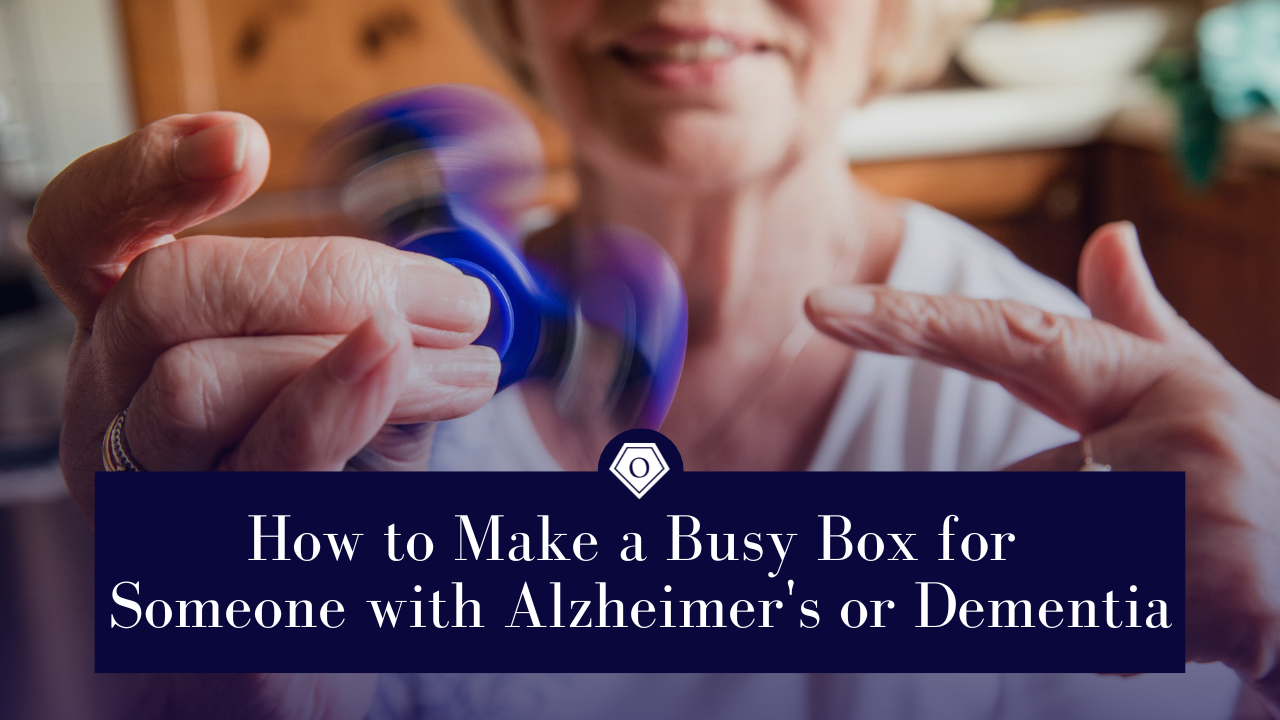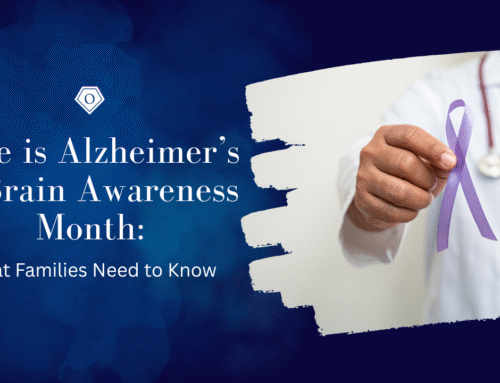A busy box is a thoughtful and engaging activity tool designed specifically to support individuals living with Alzheimer’s or dementia. As the disease progresses, people often experience moments of anxiety, boredom, or restlessness, and a busy box can help provide comfort and focus during these times. These boxes are filled with simple, hands-on activities and sensory items that can be customized to the individual’s personal interests, hobbies, or past professions. By giving them something familiar and meaningful to interact with, busy boxes encourage mental stimulation, reduce agitation, and foster a sense of accomplishment. Whether it’s a collection of nostalgic objects, tactile materials, or small puzzles, the busy box serves as a gentle way to promote engagement and connection, offering moments of joy and calm for both the individual and their caregivers.
Here’s how to make a Alzheimer’s busy box:
Steps to Create a Busy Box
- Choose a Box: Use a sturdy container or basket with a lid. A shoebox, plastic bin, or decorative storage box works well.
- Personalize It: Tailor the contents to the person’s interests, hobbies, or past professions.
- Add Activities and Sensory Items:
- Tactile items:
- Fabrics like felt, silk, or textured materials.
- Stress balls, squishy toys, or a fidget spinner.
- Simple puzzles:
- Wooden jigsaw puzzles or shape-sorting toys.
- Nostalgic items:
- Photos or objects that remind them of their past.
- Fine motor tools:
- Zippers, buttons, beads to string, or laces to tie.
- Sensory items:
- Scented sachets (lavender, vanilla, or citrus), or an old coin or stamp collection.
- Creative materials:
- Coloring books, crayons, or soft modeling clay.
- Tactile items:
- Test for Safety: Avoid items that are sharp, heavy, or pose choking hazards.
- Keep it Simple: Don’t overcrowd. Rotate items to maintain interest.
Benefits of a Busy Box
- Provides Mental Stimulation: Engages the brain, improving mood and focus.
- Reduces Anxiety and Agitation: Offers distraction during moments of restlessness or stress.
- Encourages Motor Skills: Supports hand-eye coordination and fine motor function.
- Promotes Nostalgia: Familiar objects can evoke happy memories, fostering connection and comfort.
- Increases Sense of Purpose: Activities mimic daily tasks, making the person feel accomplished.
- Enhances Quality Time: Encourages meaningful interaction with caregivers or family.
Typical Stage of Dementia When Busy Boxes are Beneficial
Busy boxes are most effective during the middle stages of dementia (moderate cognitive decline). At this stage:
- Individuals may feel restless, bored, or fidgety.
- They retain some ability to engage with tasks but may have difficulty concentrating for long periods.
- Sensory engagement becomes increasingly important.
A busy box can be a wonderful tool to bring comfort, engagement, and joy to someone living with Alzheimer’s or dementia, especially during the middle stages of the disease. By filling it with carefully selected items that resonate with their personality, hobbies, or cherished memories, you can help create moments of calm and purpose during an otherwise challenging time. However, while tools like busy boxes can alleviate anxiety and restlessness in many cases, it’s important to monitor for signs that the individual’s agitation might be escalating beyond what simple activities can manage. Frequent or severe agitation, particularly if it leads to aggressive behavior or disrupts their ability to rest, eat, or participate in daily routines, may indicate a need for additional support. This could mean consulting with a doctor to reassess their care plan, exploring medication adjustments, or seeking help from a professional caregiver. Remember, the journey with dementia requires a team approach, and tools like busy boxes are just one piece of the puzzle in providing compassionate and effective care. By staying attentive to their needs and recognizing when more help is necessary, you can ensure they feel supported, safe, and loved every step of the way.
Dementia & Alzheimer’s Care
Onyx Home Care’s neurological disorder care is built around a system of support. This service includes skilled home care as well as a unique program that centers on the patient’s interests and stage of illness. Our goal is to see happy family members, patients and caregivers. Often times, caregivers feel remote. Our team includes each person in the home care process to provide inclusive care that helps the patient thrive.






